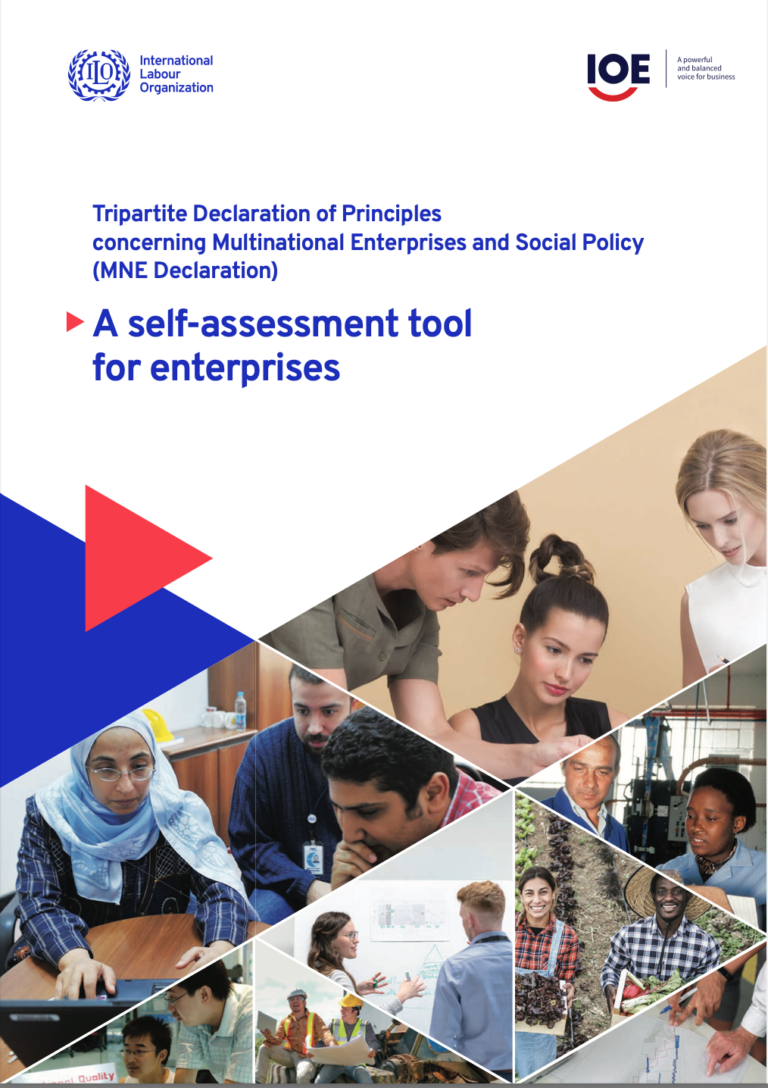This self-assessment tool for enterprises has been developed to support enterprises that seek to benchmark their corporate social policies and practices against the guidance provided in the Tripartite Declaration of Principles concerning Multinational Enterprises and Social Policy (MNE Declaration). The MNE Declaration is the most comprehensive and global guidance tool on labour and employment policy. It is the only global instrument in this area that was negotiated and adopted by governments and representatives of employers’ and workers’ organizations from around the globe. As such, it provides important guidance for enterprises.
The three key reference points for responsible business are the ILO Tripartite Declaration of Principles concerning Multinational Enterprises and Social Policy (ILO MNE Declaration), the OECD Guidelines for Multinational Enterprises (OECD MNE Guidelines) and the UN Guiding Principles on Business and Human Rights (UN Guiding Principles). They align with and com- plement each other.
These instruments set the expectation that all companies – regardless of their size, sector, operational context, ownership and structure – avoid and address the adverse impacts with which they are involved. Involvement of an enterprise could come through its own operations as well as those of its business relationships. The “impacts” concern how the enterprise’s activities affect human rights, of which labour rights are an integral part. Such impacts could be positive and/or negative; enterprises should seek to eliminate the negative and identify opportunities to contribute positively. The instruments also encourage enterprises to contribute to the sustainable development of the countries in which they operate.

